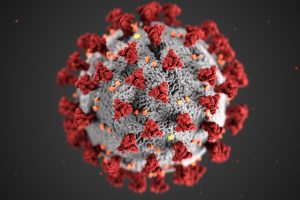Authorities said a German army lieutenant was arrested in Kehl on Tuesday, May 9, the third man to be detained in an investigation into a far-right terror plot.
“The accused is strongly suspected of planning a severe act of violence against the state out of a right-wing extremist conviction,” the prosecutor’s office said in a statement.
Maximilian T, a 27-year old German citizen, is thought to be an accomplice of 28-year-old army lieutenant Franco A and 22-year-old student Mathias F who were both arrested in Offenbach on April 26, also on suspicion on planning a racially motivated attack.
Prosecutors said the three men were planning an attack on high-ranking politicians and other prominent people to punish them for German policy on refugees. Their target list included former president Joachim Gauck and federal justice minister Heiko Maas. Prosecutors say they wanted the terror attack to appear like it was carried out by a recognised refugee motivated by radical Islamism.
Franco A was to execute the attack, prosecutors say.

Suspect posed as a refugee
Franco A attended an elite military college in France, where he wrote a Master’s thesis that argued “immigration leads to the genetic genocide of western peoples,” German Defence Minister Ursula von der Leyen said last week, adding that “it should be crystal clear to everyone that we are dealing with Nazi ideas.”
He registered as a French-speaking Syrian refugee under the fictional identity of David Benjamin, requesting asylum in Bavaria, and commuted from France to asylum hearings where he spoke through an interpreter. No concerns were raised, even though he could speak no Arabic.
According to German media reports cited by BBC, Franco A received asylum seeker benefits which he collected from Bavarian authorities.
Maximilian T was stationed at the same barracks as Franco A in Illkirch-Graffenstaden, a suburb of Strasbourg, France. Maximilian T covered Franco A’s absences with his superiors.
In preparation for the attack, the group purchased a Browning 7.65mm caliber pistol in Austria. Franco A hid the weapon in a toilet for the disabled at Vienna airport, where it was later discovered by police. He was arrested when he tried to retrieve the gun, but was later released.
Consequent investigations led to the April arrests
Germany’s chief federal prosecutor’s office took over the case from state prosecutors on May 2, citing “preliminary indications of preparations for a serious attack against the state.”
The case has raised questions over the extent of right-wing activity in Germany’s military. On May 7, the inspector general of the Bundeswehr ordered inspections of every barracks after Nazi-era memorabilia was found at two of them.
Wehrmacht memorabilia was displayed in the common room at Illkirch, despite a ban on Nazi symbols, and Nazi-era helmets were found in a display cabinet in Donaueschingen, southwest Germany.




